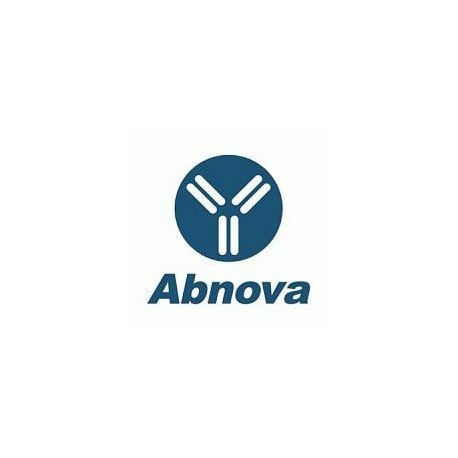Cart 0 Product Products (empty)
No products
To be determined Shipping
0,00 € Total
Prices are tax excluded
Product successfully added to your shopping cart
Quantity
Total
There are 0 items in your cart. There is 1 item in your cart.
Total products (tax excl.)
Total shipping (tax excl.) To be determined
Total (tax excl.)
Data sheet of URM1 polyclonal antibody
| Brand | Abnova |
| Product type | Primary antibodies |
| Reactivity | Yeast |
| Host species | Rabbit |
| Applications | ELISA,WB-Re |
More info about URM1 polyclonal antibody
| Brand: | Abnova |
| Reference: | PAB11366 |
| Product name: | URM1 polyclonal antibody |
| Product description: | Rabbit polyclonal antibody raised against recombinant URM1. |
| Gene id: | 854809 |
| Gene name: | URM1 |
| Gene alias: | - |
| Gene description: | Ubiquitin-like protein with weak sequence similarity to ubiquitin; depends on the E1-like activating enzyme Uba4p; molecular function of the Urm1p pathway is unknown, but it is required for normal growth, particularly at high temperature |
| Immunogen: | Recombinant protein corresponding to Saccharomyces cerevisiae URM1. |
| Form: | Lyophilized |
| Recommend dilutions: | ELISA (1:2000-1:10000) Western Blot (1:1000) The optimal working dilution should be determined by the end user. |
| Storage buffer: | Lyophilized from 20 mM potassium phosphate buffer, 150 mM NaCl, pH 7.2 (0.01% sodium azide) |
| Storage instruction: | Store at 4°C on dry atmosphere. After reconstitution with deionized water, store at -20°C or lower. Aliquot to avoid repeated freezing and thawing. |
| Quality control testing: | Antibody Reactive Against Recombinant Protein. |
| Note: | This product contains sodium azide: a POISONOUS AND HAZARDOUS SUBSTANCE which should be handled by trained staff only. |
| Product type: | Primary antibodies |
| Host species: | Rabbit |
| Antigen species / target species: | Yeast |
| Reactivity: | Yeast |
| Application image: |  |
| Application image note: | Immunoblot of Urm1 fusion protein. URM1 polyclonal antibody (Cat # PAB11366) generated by immunization with recombinant yeast URM1 was tested by immunoblot against yeast lysates expressing the URM1-GFP fusion protein and other UBL fusion proteins. All UBLs possess limited homology to Ubiquitin and to each other, therefore it is important to know the degree of reactivity of each antibody against each UBL. Panel A shows total protein staining using ponceau. Panel B shows positions of free GFP or GFP containing recombinant proteins present in each lysate preparation after reaction with a 1:1,000 dilution of anti-GFP followed by reaction with a 1:15,000 dilution of HRP Donkey-a-Goat IgG MX. Panel C shows specific reaction with URM1 using a 1:1,000 dilution of URM1 polyclonal antibody (Cat # PAB11366) (Yeast) followed by reaction with a 1:15,000 dilution of HRP Goat-a-Rabbit IgG MX. All primary antibodies were diluted in TTBS buffer supplemented with 5% non-fat milk and incubated with the membranes overnight at 4°C. Yeast lysate proteins were separated by SDS-PAGE using a 15% gel. This data indicates that anti-URM1 is highly specificand does not cross react with other UBLs. Bands present in Panel C indicate that URM1 and conjugated URM1 is present in most yeast cell lysates albeit at significantly reduced levels relative to the URM1-GFP transfected lysate. A chemiluminescence system was used for signal detection (Roche) . Data contributed by M. Malakhov, www.lifesensors.com, personal communication. |
| Applications: | ELISA,WB-Re |
| Shipping condition: | Dry Ice |
| Publications: | A protein conjugation system in yeast with homology to biosynthetic enzyme reaction of prokaryotes.Furukawa K, Mizushima N, Noda T, Ohsumi Y. J Biol Chem. 2000 Mar 17;275(11):7462-5. |


